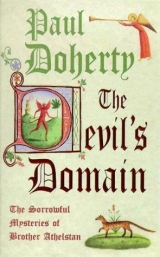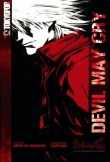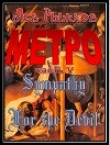
Текст книги "The Devil's domain"
Автор книги: Paul Doherty
Жанр:
Исторические детективы
сообщить о нарушении
Текущая страница: 2 (всего у книги 19 страниц)
CHAPTER 2
Sir John Cranston, coroner of the city, lowered his massive body into the high-backed chair in his small chamber at the Guildhall. Simon, his scrivener, thought Sir John looked in fine fettle. He was dressed in a doublet of burgundy, white cambric shirt, hose and soft leather Spanish riding boots. Sir John’s hair was swept and oiled back, his moustache and beard fair bristling with expectation.
‘Why are we here, Simon?’ Sir John patted his stomach. He unhitched his thick leather war belt and threw it over the corner of the chair. ‘When I leave make sure I put my sword and dagger in my sheaths. The King’s coroner cannot be too careful in this vale of wickedness.’
‘Of course, Sir John.’ Simon dared not raise his eyes. He fought to keep his face straight at what was coming. Sir John Cranston was not a man of easy temper, though kindly and big-hearted, but, as Simon told his wife, when he was surprised, Sir John’s rubicund face was a veritable tapestry of moods and emotions.
‘Well!’ He leaned his elbows on the arms of the chair. ‘Where is Adam Wallace? He said he had something important to tell me. I’ve heard Mass, broken my fast. I’m just in the mood to listen to a lawyer.’
‘I’ll fetch him in now.’ Simon rose and went down the stairs.
Sir John leaned back in his chair and scratched his head. Wallace had sent him a message yesterday afternoon, saying he had something important to tell Sir John and that he was bringing a bequest of old Widow Blanchard who lived in Eel Pie Lane. Sir John had spent the evening wondering what it could be. Blanchard had been a merry old soul; Sir John had often called in to ensure that all was well with her. Blanchard’s husband had fought with Sir John in France. Perhaps she wished to give him some keepsake? Or…? He heard a creaking on the stairs. Simon came back into the chamber at a half-run, hands hanging by his side. Sir John’s light-blue eyes blazed. He could always tell when Simon was laughing at him: the scrivener would become all humble, stoop-shouldered, chin tucked in, face down.
‘What is it, Simon?’
‘You’d best see for yourself, Sir John.’
Wallace waddled into the room, followed by a little goat.
‘In heaven’s name!’ Sir John half-rose out of the chair.
Wallace was a small, self-important man, his hooked nose perpetually dripping, little black eyes ever searching for a fee or a profit. His smile was smug as he hitched his cloak about his shoulders. He held a scroll of parchment in his hand and approached Sir John’s desk.
‘You are Sir John Cranston, coroner of the city?’
‘Of course I am, you bloody idiot! Who do you think I am, the Archangel Gabriel?’
‘Now, now, Sir John. I am only performing my duty in accordance with the law, its customs and usages.’
‘Shut up! What are you doing in my court with that bloody thing?’
He pointed at the goat and glanced dangerously at his scrivener, hunched over his desk, shoulders shaking, pretending to sharpen his quill.
‘I have identified you as Sir John Cranston, coroner of the city,’ Wallace continued lugubriously. ‘I have brought into your court, in accordance with the law, its customs and usages, the will of one Eleanor Blanchard, widow of this parish. I am her legal executor as approved in the Court of Chancery!’
Sir John pointed a podgy finger in Wallace’s face.
‘If you don’t hurry up, I’m going to have you thrown into the Fleet for contempt!’
‘Widow Blanchard’s dead,’ Wallace gabbled. ‘Her will has been approved. She has left this goat as her gift to you. She also asked that the gift be delivered in your court in a formal way according to the law, its customs and…’
‘Shut up!’ Sir John bellowed. ‘Shut up, you little noddle-pate!’
Wallace stood back, head bowed. Sir John could see the smirk on his face. Eleanor Blanchard had a sharp sense of humour. She had often talked of the goat but he had never met it. Now, by having the goat delivered here in court, he had no choice but to accept it.
‘I don’t want a goat!’ The words were out before he could stop them.
‘Sir John, Sir John!’ Wallace’s eyes rounded in mock hurt. ‘It is the last wish of that poor woman. If you refuse such a gift delivered in court…’
‘Yes, yes, I know,’ Sir John mimicked. ‘In accordance with the law, its customs and usages, I must decide what happens to it. I could give it away.’ He beamed at Simon.
‘My lord coroner.’ Simon sprang to his feet. ‘As you well know, the coroner’s court is the King’s court. If you refuse the gift here, then the goat belongs to the Crown.’
‘And if it belongs to the Crown…’ Wallace added maliciously.
Sir John wearily sat back. ‘I know, I know.’ He waved a hand. ‘The Crown will order it to be taken to the slaughterhouse and sold for the highest possible price.’ He stared at the goat.
The animal seemed docile and obedient enough. It was a fine, handsome beast; its coat was dappled gold, its small horns pointed and straight, its eyes gentle. It chewed quietly on some victual picked up from the courtyard below.
‘Sir John, I wish you well.’ Wallace bowed and walked out of the door, his shoulders shaking with merriment.
Sir John followed him and, with his boot, slammed the door shut. He walked back, slouched in his chair and studied the goat.
‘What in hell’s name am I supposed to do with you?’
‘You could take it home, Sir John.’
‘Lady Maude has a great fear of goats. By the way, what did that clever bastard call it?’
Simon sifted among some scraps of parchment on his desk.
‘Er, Judas, my lord coroner.’
‘I beg your pardon!’
‘According to this piece of paper, Widow Blanchard called it Judas.’ Simon struggled to keep his long, narrow face impassive. ‘That’s what lawyer Wallace said its name was.’
‘You’ve seen the will?’ Sir John asked.
‘Of course, Sir John. Widow Blanchard had little to give. She especially asked for Judas to be handed over to you.’
‘I should have asked Wallace for a copy of the will.’
Simon again fished among the sheets of parchment on his desk.
‘He brought one before you arrived, Sir John.’
The coroner snatched it out of his scrivener’s hand, studied the clerk’s writing, then threw it back. The parchment fell on the floor and, before he or Simon could do anything, the goat trotted forward; it seized the parchment and chewed it so quickly, the men could only stare in stupefaction.
‘I think I know why it’s called Judas.’ Simon spoke up. ‘It probably bites the hand that feeds it!’
Sir John fumbled for his miraculous wineskin where it hung on a special hook beneath the table. He opened the stopper and took a deep swig. The goat watched fascinated and took a step forward.
‘Don’t you dare!’ Sir John warned. ‘Don’t you ever come near this!’
The goat, looking rather aggrieved, stopped but he continued eating the parchment.
‘Lady Maude,’ Cranston intoned, ‘has a great horror of goats. The poppets.’ He smiled at the thought of his twin sons, Stephen and Francis, they would like it. But his manservant Blaskett, now Lady Maude’s firm ally in peace and war, would also object while those two imps of hell, the Irish wolfhounds, Gog and Magog, would tear it to pieces. Sir John took another swig of wine but kept one eye on the goat, which seemed fascinated. He was sure that the animal licked its lips.
‘Well, come on, Simon, what do you propose? None of your impertinence!’
‘Of course not, Sir John. But Brother Athelstan is your secretarius…’
Sir John’s huge face broke into a grin.
‘Of course!’ He banged the table-top. ‘Friars are supposed to love bloody animals, aren’t they? He has a cemetery, he can keep it there. There’s nothing in the will that says I can’t give it away as a gift.’ He narrowed his eyes. ‘I could still give it to you.’
‘Sir John, a wife and two children in a tenement in Pig’s Barrow Lane?’
‘Then the friar will have to have it.’ He patted his stomach in delight.
‘Remember, Sir John,’ Simon declared sonorously. ‘Athelstan is a Dominican. It’s St Francis and his Order who have the reputation of caring for animals.’
‘They are all the same to me,’ Sir John muttered. ‘Right!’
He eased himself out of his chair, put on his sword belt, sliding in the sword and dagger. As he threw the cloak round his shoulders he felt a nip on his thigh and glared down at the offending goat.
‘You are bloody well named!’ he growled.
‘Oh, Sir John, look, it likes you!’
Judas was now nudging his new owner’s tree-like thigh.
‘Get a piece of bloody rope!’ Sir John ordered. ‘Tie it round the bastard’s neck! It’s off to Southwark to join the rest of the goats!’
Simon, who had secretly promised himself to watch Sir John’s progress down Cheapside, hastened to obey. He fetched a piece of smooth hemp and expertly tied it round the goat’s neck. Sir John snatched the other end, glaring balefully at his scrivener, then paused at a clattering on the stairs. A young man, dressed in a leather doublet displaying the colours of John of Gaunt, burst into the room. Judging by his sword belt the visitor was a knight. The young man’s shirt was open at the neck and he wore a silver necklace with the ‘S.S.’ emblem of the House of Lancaster.
‘What do you want?’ Sir John snapped.
‘I’m Sir Maurice Maltravers.’
Sir John glimpsed the piece of parchment in his hand.
‘Congratulations! You work for my Lord of Gaunt?’
‘I’m in his household, Sir John.’
‘God have mercy on you.’ Sir John pulled at the goat. ‘Don’t look surprised, young man. All manner of things end up in a coroner’s court.’
I have a message, Sir John. My Lord of Gaunt, he wishes to see you and Brother Athelstan on a matter of urgency at his palace at the Savoy.’
Sir John studied the young man from head to toe.
‘Maltravers?’
‘Yes, Sir John.’
Sir John chewed the corner of his lip.
‘Oh, by the way, Simon.’ He licked his fingers. ‘Get it for me.’
The scrivener obeyed with alacrity. Sir John slipped the wineskin on to the hook of his belt, then tapped Sir Maurice on the chest.
‘I knew your father. Yes,’ he breathed. ‘Same colour hair, same strong face, though his eyes were larger and his nose was straight.’
The young man coloured. He tightened his jaw.
‘My nose was broken, Sir John, when I fought the French at sea.’
Sir John brought his great paw down on the knight’s shoulder.
‘By Mab’s tits!’ he roared. ‘You are the Maltravers who took the St Sulpice and St Denis! ’ He pushed the wineskin into the man’s hands. ‘A brave feat, it will teach the bloody French to take to sea!’
Sir Maurice didn’t know whether to be angry or pleased.
‘Go on, have a drink!’ Sir John urged. He gripped the knight’s shoulder and stared across at Simon. ‘You are in the presence of a hero, Simon! Just like his father. I was with him in France, you know? When the Black Prince went storming like the wind through Normandy. Like the dogs of war we were.’
Simon sighed and raised his eyes heavenwards. If Sir John started on the history of his exploits in France, they’d be here until Vespers. Thankfully the goat began to edge towards the parchment on the table. Sir Maurice, catching Simon’s look, hastily pushed the wineskin back into Sir John’s hand.
‘My lord coroner, I must hasten back.’
‘Aye.’ Sir John sighed and stretched out a hand. ‘I meant no offence, young man.’
Sir Maurice stared into the ice-blue eyes and recalled what the gossip said about this great coroner with his red face and bristling white moustache and beard. A man of integrity, a warrior, bluff and truthful, who didn’t even spare the Regent his strictures. He grasped the older man’s hand.
‘None taken, Sir John. My Lord of Gaunt will tell you the reason for his summons.’
Sir John snatched the rope from Simon’s hand and stood listening to the young knight go down the stairs.
‘A veritable hero, Simon,’ he repeated dreamily. ‘Perhaps England still produces the like, its crops of heroes, brave men. Have you ever heard that line?’
The scrivener shook his head.
‘I don’t know who wrote it,’ Sir John continued as if speaking to himself. ‘Anyway, it goes something like this.’ He threw his head back and put one leg forward, like a chanteur. ‘Ah yes. That’s it. “Since the beginning of time two things are constant: the greenness of the earth and the courage of man.”’ He wiped a tear from his eyes. ‘Beautiful poetry! Oh, Satan’s arse!’
Judas the goat had sidled up and was now nibbling at the wineskin. The coroner stared down at the goat which, as if he had taken a great liking to his new owner, stared innocently back.
‘Haven’t you read the Scriptures?’ Sir John bawled. ‘Judas went out and hanged himself. If you’re not careful, my lad, the same bloody thing will happen to you! That’s my wineskin.’ He held the precious object up. ‘You never, ever touch it!’
And, dragging the goat by the rope, Sir John left the chamber and went out into Cheapside.
If he had known what was going to happen, Sir John would never have done what he did that morning. The broad thoroughfare of Cheapside was thronged with people swirling like shoals of coloured fish among the many stalls. He was hardly out, pushing his way through the crowds, before people noticed.
‘There goes Sir Jack and his goat!’ someone shouted. A penny for the man who can tell the difference!’
Sir John gazed round, eyes popping.
‘Tadpole!’ he bawled at a scrawny beggar boy. ‘Did you shout that?’
‘Me, Sir John?’ The dirty face was as innocent as an angel’s, eyes rounded. ‘Sir John, would I say such a thing?’
Muttering under his breath, he continued on his way. The sun was strong and the stall-owners were doing a roaring trade: leather goods, silks and tapestries, pots and pans, vegetables and fruits from the outlying farms and villages. The air was rich with the smell of horse dung mingling with the sweeter smells from the cookshops and bakeries. Young gallants from the court paraded in their long, gaudy jackets, tight hose and high-heeled leather riding boots, and protuberant codpieces: round slim waists hung brocaded war belts with sword and dagger pushed in. Their hair was prinked and crimped. The coroner looked away in disgust. He was sure some of the men even wore make-up.
‘Pretty bum-boys!’ he mumbled. ‘No wonder the French have it all their own way.’
Everyone seemed to have thronged into Cheapside. Merchants in their costly robes, their wives in samite dresses, their ornate head-gear created out of wisps of veils which threatened to catch signs hanging over the shops behind the stalls. Apprentices scurried, seeking custom. A farmer was trying to get two bullocks up through the crowds to the slaughterers at Newgate. Outside the Peascod Tavern, men were wagering on a fight between a badger and a dog. In the open space before St Mary-Le-Bow, a blind bear danced while beggar children played a reedy tune on pipes. Felons from the Marshalsea and Fleet prisons, manacled together, clattered and clashed their chains as they were marched up to the courts, the tipstaffs keeping order with their white willow wands. Windows and doors were flung open, people were shouting and talking to passersby. A dung cart had turned over, spilling its messy contents out. Some of the ordure had landed on a fruit stall and bailiffs were desperately striving to prevent a fight breaking out between its owner and the dung-collector. Everyone fell silent as a funeral procession passed. The corpse was laid out on a stretcher covered by a sheet, carried by four friars who mumbled the prayers of the dead; an altar boy ran in front of them, holding a candle and ringing a bell.
Sir John kept his head down as he pulled at Judas who really needed no second bidding but trotted along as obediently as any trained dog. A group of whores came out of an alley, heads bald as pigeons’ eggs, coloured wigs clutched in their hands. They espied Sir John and followed him, making up a lewd song about the coroner and his goat. Only when he turned round, his face like thunder, did the whores stop. One of them turned and lifted her ragged, dusty dress and they all fled laughing and joking among themselves. A few beggar boys then took up the game. Sir John sighed; by evening Lady Maude would know what he had done and he would have to explain.
‘Oh Sir John, Sir John!’
He groaned and stopped. Leif the red-haired, one-legged beggar came hopping towards him as nimble as a cricket. Sir John had never met a more vexatious fellow but one look at poor Leif’s scared face and the coroner’s heart softened. Leif could wheedle a penny out of a miser.
‘Sir John, have you heard me?’
The coroner used the opportunity to flail out at the urchins who scampered away.
‘Why, Sir John, what a beautiful goat. Are you taking it home?’
Sir John gazed bleakly back.
‘You’ve heard me, Sir John,’ Leif gabbled, deciding it best to ignore Sir John’s strange companion.
‘In sweet heaven’s name, Leif, what are you chattering about?’
‘I’ve decided to become a singer, Sir John. A chanteur.’
And, without being invited, Leif threw his head back, one hand on his chest. ‘My love,’ he warbled, ‘is like a flower, fresh and sweet.’
‘Thank you, Leif,’ Sir John bawled.
‘I sang last night, Sir John, outside your chamber.’
I thought it was cats fighting.’
Leif stared mournfully back. Sir John heaved a sigh and delved into his purse. He thrust a coin into the beggar man’s hand.
‘Look, Leif, there’s a penny.’
‘Oh, thank you, Sir John, is that for my singing?’
‘No, Leif, it isn’t. You are not to sing beneath my chamber. You will frighten the poppets. Secondly, you are not to follow me into the Holy Lamb of God. And, thirdly, you are not to tell Lady Maude I’ve been there.’
‘Very good, Sir John.’ Leif hopped away, warbling his head off.
‘Come on, Judas!’ Sir John urged. ‘There’s no problem in life which can’t be resolved by a meat pie and a tankard of ale.’
And, like an arrow finding its mark, Sir John pushed his way across Cheapside into the tangy, warm welcome of the tavern.
The taverner’s wife fussed over him. She brought a frothing tankard of ale and a meat pie. Sir John made the mistake of sitting back in his favourite seat near the garden window; when he glanced down, Judas was munching the greens round the pie and licking the pastry.
‘Oh!’ he groaned and called for a second dish. ‘I just hope Brother Athelstan takes you.’
The taverner’s wife, laughing and joking, brought across a second tray. Sir John held it on his lap and ate quickly, glaring suspiciously at Judas.
I wonder what Athelstan will think about you?’ he muttered.
But, there again, the coroner reflected, there were many questions he would like to ask his secretarius. He had been horrified by the stories, which had not been proved or denied, that Athelstan had been ordered out of London to Oxford. He had only been stopped at the last minute by the direct intervention of Prior Anselm. Cranston had made his own enquiries but could discover nothing. When he had summoned up the courage to question the little Dominican, Athelstan had just shaken his head and smiled.
‘It’s a possibility,’ he confirmed. ‘But I think, Sir John, I’ll be in St Erconwald’s for some time. Prior Anselm says there’s no further need for me to be your secretarius. But I have begged him that I can continue and he has agreed.’
Sir John had to be comforted by that. Athelstan had first been sent to St Erconwald’s and appointed his secretarius as a penance. Years earlier, Athelstan had fled his novitiate and, his mind full of glory, had joined his feckless younger brother in the armies in France. Stephen had been killed and Athelstan had returned, a changed and chastened man. Sir John, who had little time for prattling priests or mouldy monks, as he termed them, regarded Athelstan as a very special friend. If the Dominican ever left, some of the joy and warmth of his own life would be diminished.
The coroner licked his fingers, drained his tankard then put the dish on the floor so Judas could finish what was left of the vegetables. He slammed a coin on the table and walked back into Cheapside. The urchins were waiting. He groaned, gritted his teeth and walked along until he reached the corner of Poultry near the Tun on the corner of Lombard Street. This great open space was used by the beadles and bailiffs of the city to punish malefactors. A whore had been bent over a barrel; her grimy, fat buttocks were being lashed by a switch of canes. A counterfeit man was being branded on his left thumb. Another was getting his ears clipped. Sir John glanced away. He hated such sights. The stocks and pillories were also full. He recognised a cheeky, dirty face under a shock of white hair straining between the wooden slats placed round his neck.
‘Why, if it isn’t old Godbless!’
The man pulled up his head as far as he could, wincing with pain.
‘God bless you, Sir John, it’s kind of you to notice. You have a fine billy goat there. Cleaner and more obedient than a dog, Sir John.’ He stretched his neck. ‘Lord save us, I’m here to dusk and my neck’s already aching.’
‘What did you do?’ Sir John asked, an idea forming in his mind.
‘The watch found me with a piglet under my cloak. They claimed I was stealing it. I said I had found it wandering and was looking for its mother.’
Sir John laughed and called over one of the bailiffs.
‘Free this man!’ he ordered.
The bailiff wiped his dirty, sweaty face on a rag.
‘But, Sir John, the law says…’
I am the law. Now, sir, either you free him or I’ll free him and make you take his place!’
Godbless was soon released. A small, sinewy man dressed in a motley collection of rags, he danced in glee at his liberation. The other malefactors in the stocks now began to shout.
‘Sir John, over here!’
‘Innocent as a lamb, I am, Sir Jack!’
‘I didn’t mean to hit the beadle!’ another cried.
‘I only drank four quarts of ale!’ someone else bawled.
Sir John ignored them and seized the dancing Godbless. ‘You’ve worked with animals, haven’t you, Godbless?’ The man stopped his dancing and nodded.
‘Well, you’ve been freed to help the Crown.’ Sir John passed the rope over. ‘This is Judas and he’s well named. I’m taking him to St Erconwald’s. You will follow behind at least a good three yards.’
He passed across a coin. Godbless took it in the twinkling of an eye. The coroner leaned down and, grasping the beggar by the jerkin, picked him up till his face was level with his.
‘Don’t even think of it, Godbless!’
‘What, Sir John?’ Godbless’s bright eyes gleamed.
‘Running!’ Sir John declared. ‘Taking my goat and running.’ He shook Godbless. ‘Understood?’
‘Every word, Sir John. I’ll be your shadow.’
‘Not too close,’ Sir John warned.
He put the beggar man down and, with Godbless trailing behind him leading the little goat at a trot, Sir John Cranston, coroner of the city of London, swept down to London Bridge.








